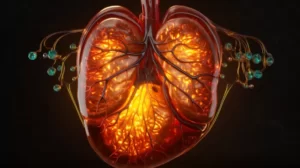If you think you’re in the clear by limiting your alcohol consumption to weekends, think again. Binge drinking that results in hangovers can have serious negative effects on your liver and overall health. Alcoholic liver disease and other chronic health issues may be looming on the horizon if you’re a regular binge drinker.
The Dangers of Binge Drinking
According to research conducted by Shivendra Shukla at the University of Missouri School of Medicine, binge drinking can have a “profound effect on the liver in various modes of alcohol exposure.” The commonly held belief that only chronic alcohol consumption leads to alcoholic liver disease is outdated. Shukla’s research reveals that binge drinking — even sporadic episodes — can sensitize the liver over an extended period, making it prone to injury.
The National Institute on Alcohol Abuse and Alcoholism (NIAAA) defines binge drinking for women as having four or more drinks in two hours; for men, it’s five or more drinks within the same timeframe. Over the course of one year, a staggering 29% of women and 43% of men reported experiencing at least one episode of binge drinking. Unfortunately, the numbers show that binge drinking among Americans is on the rise.
However, the harmful effects aren’t limited to the liver. Shukla warns that “binge drinking should not be associated with only liver damage. It creates an inflammatory response in the liver that is like a cluster bomb, sending out various damaging signals to systems in the body.” When those organs are operating below optimal levels, many physiological processes are affected.
The Consequences of Binge Drinking
When you participate in a night of heavy drinking, you’re not only inviting the dreaded hangover the following day but potentially causing long-lasting damage to your body. The ramifications of binge drinking include:
- Impaired cognitive function: Binge drinking can lead to both short-term and long-term cognitive impairment. Memory loss, poor decision-making, and diminished problem-solving abilities are just a few of the ways that excessive alcohol consumption can negatively affect your brain.
-
Weakened immune system: Drinking excessively can suppress your immune system, making you more susceptible to illnesses and infections.
-
Increased risk of cardiovascular issues: Binge drinking has been linked to a higher risk of developing high blood pressure and stroke.
-
Damage to the digestive system: Alcohol can interfere with the normal function of your digestive system, leading to acid reflux, gastritis, and ulcers.
-
Increased risk of dependence: Regular binge drinking can lead to alcohol dependence, which can have severe consequences on your mental and physical health as well as your personal and professional life.
Tips to Avoid Binge Drinking
If you want to protect your liver and overall health, it’s essential to find ways to curb your binge drinking habits. Here are some suggestions:
- Set limits: Decide before you go out how many drinks you’ll have and stick to that limit.
-
Eat a meal before drinking: Consuming food before alcohol can help slow down the absorption of alcohol into your bloodstream.
-
Drink slowly: Sipping your drink instead of taking shots or chugging can help you pace yourself and avoid overconsumption.
-
Stay hydrated: Make sure to drink water before, during, and after consuming alcohol to help counteract the dehydrating effects of alcohol.
-
Choose low-alcohol drinks: Opt for beverages with a lower alcohol content to reduce the overall amount of alcohol consumed.
-
Find alternative activities: Participate in activities that don’t involve alcohol, such as game nights, sports, or other hobbies.
-
Seek support: If you find it challenging to stop binge drinking, reach out for help from friends, family, or professionals such as therapists or support groups.
In conclusion, it’s crucial to understand the dangers associated with binge drinking and the potential harm it can cause to your liver and overall health. By setting limits, choosing lower-alcohol beverages, and finding alternative activities, you can reduce your chances of developing chronic health problems linked to excessive alcohol consumption. Remember, moderation is key when it comes to maintaining a healthy lifestyle and enjoying your favorite drinks responsibly.



![8 Simple Rules to Refresh Your Body with a Healthy Cleanse [See Pictures]](https://naturalhealthreserve.com/wp-content/uploads/2024/01/8-rules-healthy-cleanse-slideshow-300x168.webp)